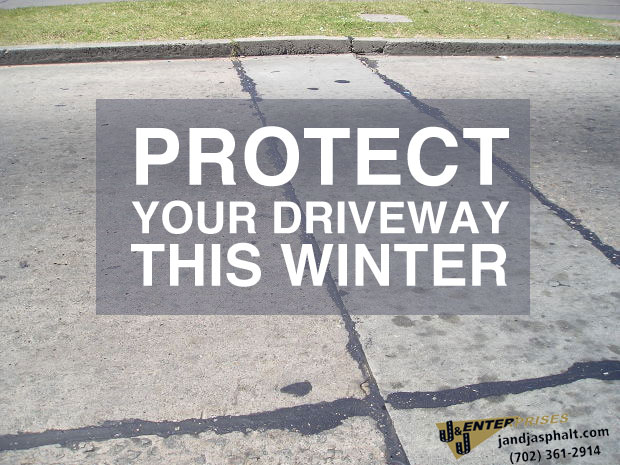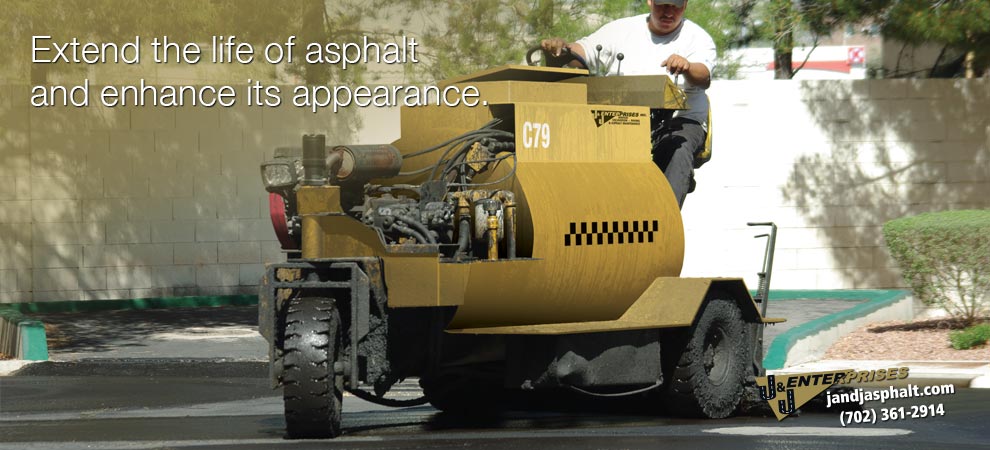Winter can be hard on an asphalt driveway. The cycle of freezing and thawing creates and widens cracks. To protect your investment this cold season, and maintain the curb appeal of your home, a thorough patch and seal job is the way to go. Read ahead to find out how to restore your asphalt and keep it in shape through the harsh winter months.
Prior to Sealing
1. Look for trouble spots
Before you begin patching and sealing, inspect your driveway for cracks, oil stains, potholes, and crumbling.
2. Clean stains
Remove oil and grease stains with hot, soapy water and a scrub brush. If stains persist, use a degreaser.
3. Fill Cracks
It is critical to repair even the smallest cracks before sealing, otherwise the cracks will grow larger over time. Different size cracks may require different kinds of filler, so be sure to carefully read the instructions and specifications before you make a purchase. It’s important to clean out the cracks of any loose dirt, grass, stones, or other debris before filling.
4. Patch Potholes
Potholes require a different strategy than cracks. For potholes, you’ll need to use blacktop or cold patch. You’ll want to extricate loose asphalt and substrate with a shopvac and use a shovel to spread the blacktop about two inches deep across the hole.
5. Prep for sealing
Now you’ll want to give the driveway a thorough cleaning. Use a push broom to sweep away debris, then use a garden hose or pressure washer to rinse the surface clean. Start at the highest part of your driveway and work down and out toward the edges.
Sealing Your Asphalt Driveway
Check the weather before sealing your driveway. Depending on the sealer, you will need two to three days of dry weather for the sealant to set properly and the driveway must be completely dry before you start.
The least expensive driveway sealers available are called tar emulsion sealers at about $12 per 5-gallon pail, but provide minimal protection. Asphalt emulsion sealers, the most popular type of driveway sealer, cost about $25 for a pail and don’t typically require stirring wile providing excellent resistance to water penetration. Even better are latex-acrylic sealers: they last longer, fade less, and dry very quickly. With this type of sealant, you can usually put weight on the driveway after only 4 hours. However, this effectiveness isn’t cheap, you can expect to pay up to $65 for two gallons of latex-acrylic sealer. If you want to pull out the big guns, industrial strength liquid-rubber sealers are the way to go. Oftentimes fortified with titanium, these sealers provide superior protection and resistance–at a cost: $500 per 5-gallon pail.
Each type of sealer has specific application guidelines. You have to be sure to use the proper tools and carefully follow the manufacturer’s instructions.
Not looking forward to spending your weekend days repairing your cracked driveway. Give us a call, and we will make sure your asphalt repairs and other concrete needs in Las Vegas are taken care of. Contact J & J today at 702-361-2914


